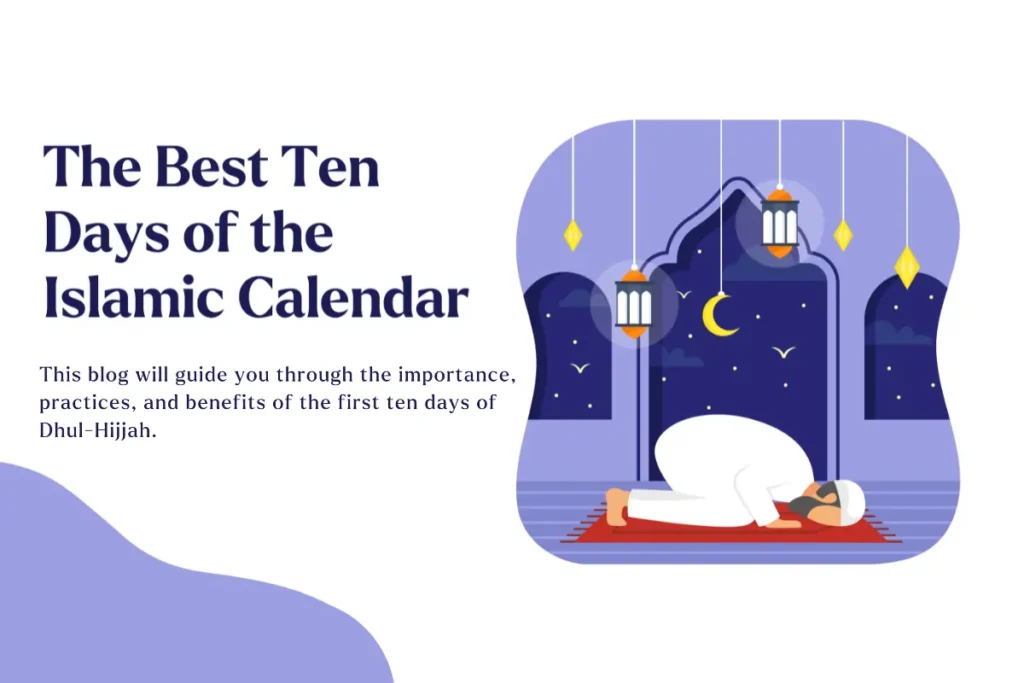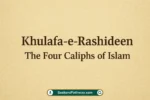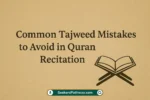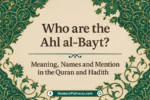In the Islamic calendar, the first ten days of Dhul-Hijjah hold unparalleled significance. These days are a period of immense spiritual opportunity and merit, offering Muslims around the world a chance to engage in heightened worship and devotion. Whether you are new to learning about these auspicious days or seeking to deepen your understanding, this blog will guide you through the importance, practices, and benefits of the first ten days of Dhul-Hijjah.
Understanding Dhul-Hijjah
Dhul-Hijjah is the twelfth and final month of the Islamic lunar calendar. It is a sacred month, notable for the annual pilgrimage to Mecca (Hajj), one of the Five Pillars of Islam. The first ten days of this month are especially revered, as they encompass both the pilgrimage rites and the significant event of Eid al-Adha.
Why Are the First Ten Days of Dhul-Hijjah Special?
The first ten days of Dhul-Hijjah are considered the best days of the Islamic calendar for several reasons:
Quranic Reference:
Allah swears by these days in the Quran, highlighting their importance: “By the dawn; By the ten nights” (Quran 89:1-2). Scholars interpret “the ten nights” to refer to the first 10 days of Dhul-Hijjah.
Prophetic Endorsement:
Prophet Muhammad (peace be upon him) emphasized the significance of these days: “There are no days in which righteous deeds are more beloved to Allah than these ten days” (Sahih Bukhari). This hadith underscores the exceptional virtue of good deeds performed during this period.
Hajj:
The pilgrimage, which millions of Muslims undertake, takes place during these days, culminating in the standing at Arafat on the 9th of Dhul-Hijjah. This act of worship is a key moment of repentance and supplication.
Eid al-Adha:
The 10th of Dhul-Hijjah marks Eid al-Adha, the Festival of Sacrifice, commemorating Prophet Ibrahim’s (Abraham) willingness to sacrifice his son in obedience to Allah’s command. This day is celebrated with prayers, feasts, and acts of charity.

Acts of Worship During the First Ten Days
Muslims are encouraged to engage in various forms of worship during these ten days to maximize the spiritual rewards. Here are some key practices:
Dhul-Hijjah Fasting:
It is highly recommended to fast on the first nine days of Dhul-Hijjah, especially on the Day of Arafat (9th Dhul-Hijjah). Fasting on this day expiates the sins of the past and the coming year.
Prayer and Quran Recitation:
Increased engagement in obligatory and voluntary prayers, along with recitation and reflection upon the Quran, are encouraged.
Dhikr (Remembrance of Allah):
Regularly saying phrases of remembrance, such as “SubhanAllah” (Glory be to Allah), “Alhamdulillah” (All praise is due to Allah), and “Allahu Akbar” (Allah is the Greatest), is highly meritorious.
Charity:
Giving to those in need, whether through monetary donations, food, or other means, is particularly rewarding during these days.
Qurbani (Sacrifice):
Performing the act of Qurbani, or sacrificing an animal on Eid al-Adha, symbolizes the willingness to give up things we hold dear in obedience to Allah. The meat is distributed among family, friends, and those in need.
Spiritual Benefits of These Ten Days
Engaging in the prescribed acts of worship during the first ten days of Dhul Hijjah offers numerous spiritual benefits:
Forgiveness:
Sincere repentance and acts of worship can lead to the expiation of sins, providing a fresh start for the believer.
Increased Reward:
Good deeds performed during these days are multiplied, offering a greater chance to earn Allah’s pleasure and reward.
Spiritual Renewal:
These days provide an opportunity for Muslims to renew their faith, deepen their devotion, and strengthen their relationship with Allah.
Community and Unity:
The collective acts of worship, charity, and sacrifice foster a sense of community and unity among Muslims worldwide.
Conclusion
The first ten days of Dhul-Hijjah are a special time in the Islamic calendar, offering a unique opportunity for spiritual growth and increased devotion. By understanding the significance of these days and engaging in acts of worship, Muslims can draw closer to Allah and earn immense rewards. As these blessed days approach, let us prepare to make the most of this sacred period, embodying the values of faith, compassion, and dedication to Allah’s commandments.










